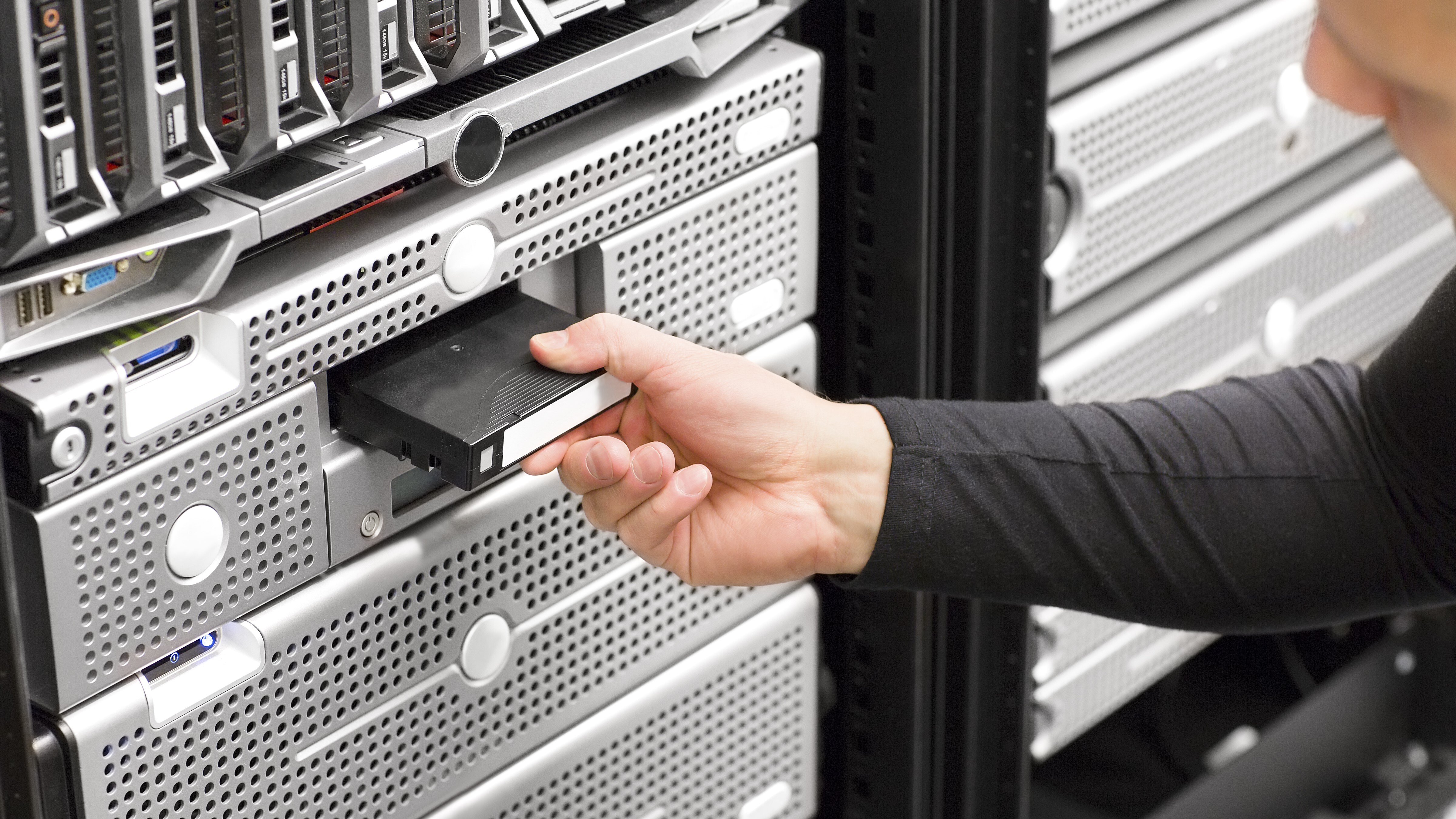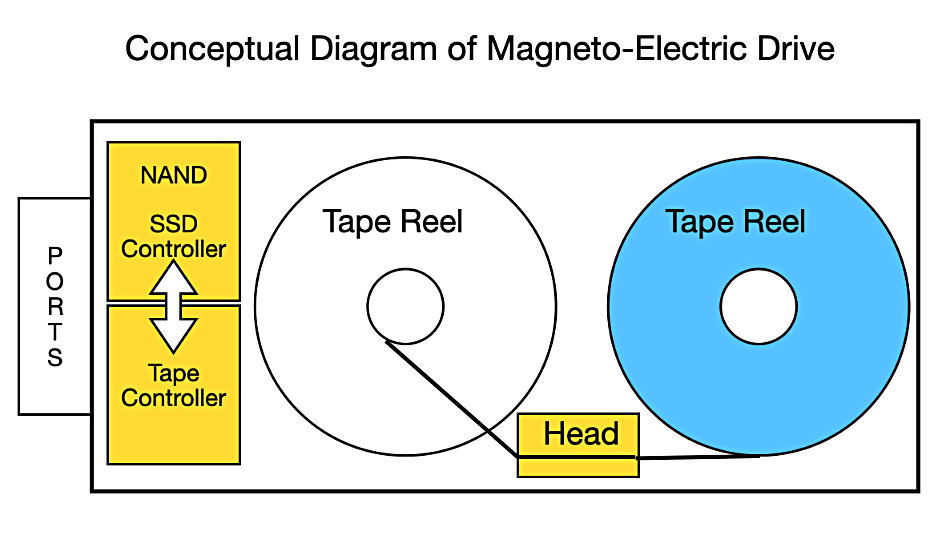Huawei develops massive 72TB SSD-tape hybrid storage device — first-gen MED drive targets warm and cold storage
Huawei's hybrid storage device can store up to 72 TB.

As Huawei is on the U.S. government's Entity List, the company has trouble obtaining hard drives made by American companies. As a result, the company develops its own storage technologies to replace HDDs. Earlier this year, Huawei introduced its so-called magneto-electric disk (MED) storage technology, which combines the performance of SSDs with the capacity of tape. MED is designed to address nearline (warm) and archive (cold) storage applications and is meant to replace classic HDDs, thus reducing reliance on American technology, reports Blocks and Files.
MED integrates an SSD with a proprietary tape system (tape, motor, read/write head, and tape spools) contained within a single sealed unit. This design enables MED to operate like a disk with block-based storage, combining high-speed access from the SSD for warm data and slower tape storage for archiving cold data. MED contains around half the length of standard LTO tape to store archival data. The tape moves through the read-write heads automatically, eliminating the need for external robotic systems seen in tape libraries.
Data management within MED is straightforward: incoming data is written to the SSD and is then sequentially moved to tape storage. The system has metadata maps stored in NAND, allowing it to locate specific data blocks and fetch them from either SSD or tape. The SSD, equipped with a flash translation layer (FTL), processes and manages data blocks to maintain optimal performance for warm storage.
The performance of MED looks quite impressive. The first-generation MED holds 72 TB of data and uses only 10% of the power required by traditional disk drives. In a rack setup, MED units can achieve a combined throughput of 8 GB/s, offer over 10 PB of storage, and consume under 2 kW of power, which makes them a cost-effective and power-efficient choice for data centers.
Huawei says that MED promises a 20% reduction in total cost of ownership compared to conventional tape systems. With no robotic elements and reduced physical space requirements, MED aims to provide a high-density, low-power solution that reduces the operational overhead of typical storage systems.
Huawei's roadmap indicates persistent improvements aimed at optimizing storage density and efficiency. Future developments for MED include a second-generation unit planned for release in 2026 or 2027. This model is expected to fit a smaller 3.5-inch drive bay and feature a shorter tape with higher area density.
The MED device reduces the traditional three-layer storage hierarchy of SSD, HDD, and tape to just two layers: SSD and MED. This simplified approach could help data centers and cloud providers manage storage more efficiently, reduce power consumption, and achieve quicker data access times.
Get Tom's Hardware's best news and in-depth reviews, straight to your inbox.
According to Huawei, Chinese cloud providers are already exploring the adoption of MED for archival storage, showing its appeal in applications affected by U.S. technology export restrictions.
Huawei's efforts in the storage industry also extend to SSD innovation, with a planned 60 TB SSD using 3D QLC NAND with SLC cache, complementing MED in high-capacity storage.

Anton Shilov is a contributing writer at Tom’s Hardware. Over the past couple of decades, he has covered everything from CPUs and GPUs to supercomputers and from modern process technologies and latest fab tools to high-tech industry trends.
-
Li Ken-un Reply
The units are probably shedding micro-ribbons of tape like lint through a microscopic exhaust for data exfiltration. 😆Dr3ams said:Dismantle and look for backdoor tech. 👀 -
CNman Reply
sure, even Huawei has been declared bankrupt 3 years ago by people here.Kondamin said:And they last 3 months -
Kondamin Reply
They would have been gone if it weren’t for state intervention.CNman said:sure, even Huawei has been declared bankrupt 3 years ago by people here.
As it stands now it was a smart move to keep them afloat, doesn’t make this anything but a dumb product as it will destroy it self going back and forth retrieving data -
Kondamin Reply
I doubt this will see much media attention after the introduction.Amdlova said:Cool... waiting to the failure rate...
When this become online...
If they last it's because they get used like regular lto drives, very sporadically -
bill001g Not sure their market. Any large corporations are not going to use huawei products especially if they have any contract with the government. Likely way out the price range even if a home or small business wanted to use it.Reply -
Misgar A new challenge for those long winter evenings. I could disassemble an old full height LTO drive and see if there's room inside for a few mods. It's been some time since I last spent several months designing and building a new project.:)Reply
Just checked my local Amazon web site. Loads of brand new Huawei laptops for sale. Checked Amazon.com and couldn't find any. -
LuxZg Reply
They have huge market in China, and a lot of internal needs for own cloud systems. Plus the rest of the world that doesn't care what US thinksbill001g said:Not sure their market. Any large corporations are not going to use huawei products especially if they have any contract with the government. Likely way out the price range even if a home or small business wanted to use it.
